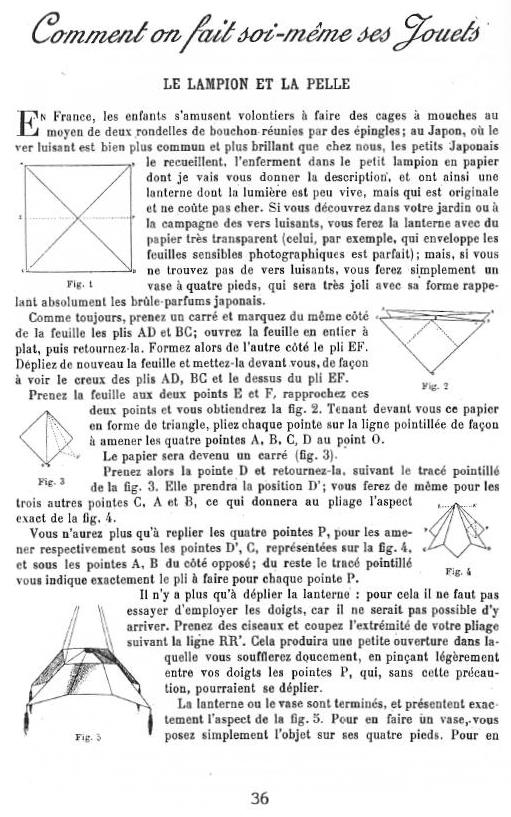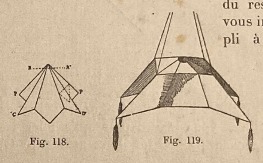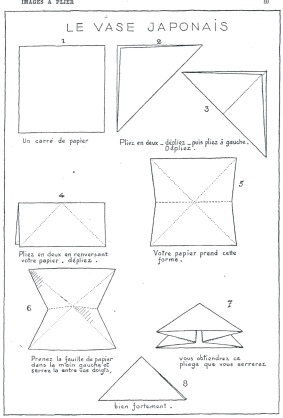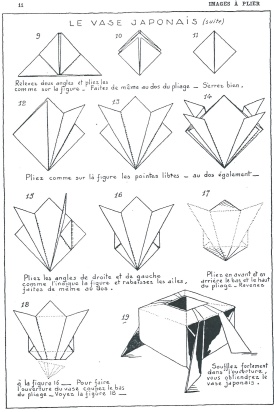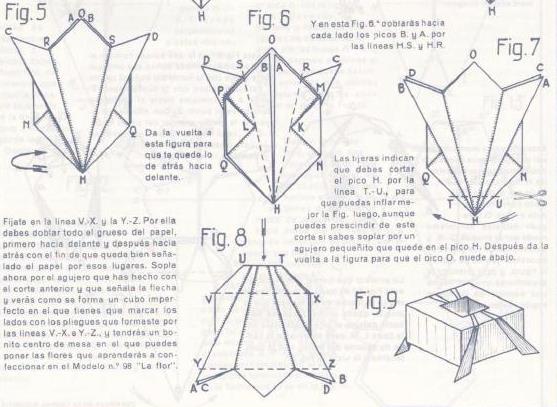| The Public Paperfolding History Project
Last updated 16/12/2025 x |
|||||||
| The Mushikago / Le Lampion | |||||||
This page is being used to collect information about the history of the paperfolding design known as the Mushikago, which translates as 'Insect Basket'. The Mushikago is a variant of the Waterbomb. A similar design also occurs under the name Le Lampion. Please contact me if you know any of this information is incorrect or if you have any other important information that should be added. Thank you. ********** In Japan (and in books by Japanese authors) 1931 A version of this design appears as 'Mushikago' (insect basket) in 'Origami (Part 1)' by Isao Honda, which was published in Japan in 1931.
********** 1944 In 'Origami Shuko' by Isao Honda, which was published in 1944.
********** In Europe and the Americas 1901 As far as I know a version of this design first appears as Le Lampion (the lantern) in the French children's magazine Article in Mon Journal of 17th August 1901. The introduction says, roughly, 'In France children happily amuse themselves making cages for flies by means of two 'rondelles de bouchon' (lit. plug washers but probably paper filters?) joined together by pins. In Japan, where the glow-worm is more common and more brilliant than it is here, the Japanese catch them and enclose them in the small paper lantern which I will describe to you, and thus have a lantern whose light is not very bright, but which is original and does not cost much. If you find glow-worms in your garden or the countryside you will make a lantern from very transparent paper ... but, if you can't find glow-worms you will simply make a four-legged vase, which will be very pretty with its shape absolutely reminiscent of Japanese perfume burners.'
********** 1908 Diagrams for 'Le lampion' also appear in 'Les Petits Secrets Amusants' by Alber-Graves, which was published by Librairie Hachette in Paris in 1908.
********** 1929 A version of the Mushikago under the name 'Le Vase Japonais' appeared in the issue of the French children's magazine 'L'Age Heureux' of 17th October 1929.
********** 1932 A version of the Mushikago under the name 'Le Vase Japonais' appeared in Booklet 1 of 'Images a Plier', a series of 6 booklets published by Librairie Larousse in Paris in 1932. The closed box is turned into an open-topped vase by the simple expedient of cutting the centre of the top away.
********** The same cut version of the design appears, as 'Vaso japonÚs', in Booklet 3 of 'Figuras de Papel', a series of 3 booklets published by B Bauza in Barcelona in 1932.
********** 1951 The cut version also appears, as 'El Centro de Sobremesa' (Table or Desk Centre) in the extended version of 'El Mundo de Papel' by Dr Nemesio Montero, which was published by G Miranda in Edicions Infancia in Valladolid in 1951.
********** |
|||||||


